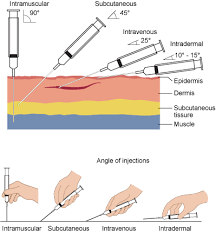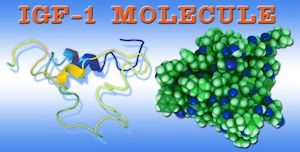Testosterone Replacement Therapy (TRT) has proven to be incredibly effective for aging men in their quest to turn the clock back. Hypogonadism (aka Low testosterone levels or “Low-T”) plays a significant role in the appearance of symptoms of aging such as:
• Chronic fatigue.
• A weakened immune system that sets the stage for the onset of many diseases, including severe afflictions.
• A loss of strength and muscle size.
• Depression.
• Trouble concentrating.
• Irritability.
• Insomnia.
• Prolonged muscle soreness after a workout due to a diminished recovery capacity.
• Erectile dysfunction (ED).
• A collapsing libido.
• And more, many more symptoms of vanishing manhood.
These developments make it easy to see why many men are exploring testosterone treatments to determine if it is right for them.
A hesitation about injections
Intramuscular injection (IM) is the standard for administering testosterone since it is easily absorbed with this method. But there are also other ways of putting the “manly  hormone” to work: testosterone patches, creams, and pellets, all of which have proven effective.
hormone” to work: testosterone patches, creams, and pellets, all of which have proven effective.
But none of these methods are as convenient as swallowing a pill. Until recently, oral testosterone administration was discouraged since there was an increased risk of liver toxicity.
However, recent experiments and alterations resulted in a new preparation method that has shown promise in creating safe and effective testosterone pills.
Here is a brief review of recent studies.
MIAMI -- Oral testosterone replacement therapy (TRT) appeared safe and effective in men with low testosterone, according to a recent study. Among nine studies that measured changes in serum total testosterone, men with testosterone deficiency who took an oral agent -- predominantly testosterone undecanoate -- saw a significant increase in total testosterone, with a mean change of 1.25 ng/mL (95% CI 0.22-2.29), according to Jake A. Miller, MD, of the University of California Irvine.
And in eight studies that uncovered adverse side effects, there was no significant change in risk in patients taking oral testosterone versus placebo, with a risk ratio of -0.03 (95% CI -0.08 to 0.03), he said at the Sexual Medicine Society of North America (SMSNA) annual meeting.
Miller stated that testosterone undecanoate was "not necessarily something that's new. I just think that, unfortunately, it [oral testosterone in general] got stigmatized very early on, as far as its use, and now we're starting to see that with the new formulation, we're challenging some of those concerns."
 Earlier forms of oral testosterone, like methyltestosterone, increased the risk of high blood pressure, elevated liver enzymes, and prostate swelling due to its fast metabolism. Consequently, "multiple guidelines...essentially made a hard line to say 'Do not use oral testosterone for these patients, just use injection, just use gel, just use intranasal,'" since these formulations are absorbed less rapidly, Miller said.
Earlier forms of oral testosterone, like methyltestosterone, increased the risk of high blood pressure, elevated liver enzymes, and prostate swelling due to its fast metabolism. Consequently, "multiple guidelines...essentially made a hard line to say 'Do not use oral testosterone for these patients, just use injection, just use gel, just use intranasal,'" since these formulations are absorbed less rapidly, Miller said.
Three forms of oral undecanoate testosterone are currently approved by Food and Drug Administration (FDA) (Tlando, Kyzatrex, and Jatenzo). These could offer an alternative for patients who can't use other ways of taking testosterone.
The nine studies that compared oral testosterone to placebo had 606 patients and spanned from 1989-2019, while the eight studies of adverse effects had 849 patients. Most of the patients were adult males with diagnosed Low-T, said Miller. The analysis excluded women and transgender patients who were taking oral testosterone since these patients usually take several forms of testosterone.
Two studies reported heightened incidences of adverse effects for both placebo and control groups, while five reported very low incidences of adverse effects for both groups. Miller said that resulted from different criteria for what was considered an adverse effect.
He said that "despite having some of this new data available, when they [guidelines] discuss oral testosterone, it's clear based on the resources that they are only reviewing the data from the 1970s population and excluding the more recent stuff. What we're hoping to achieve with our paper is to say, 'Maybe we should start to re-evaluate now the new work [data] coming out.'"
Another study of oral testosterone undecanoate (TU, Jatenzo) found it effective for men with low testosterone levels, with no evidence of liver damage. The conclusions were presented at ENDO 2021, the Endocrine Society’s annual meeting.
TRT is currently available in various administration methods, such as pellets, gels, and intramuscular injections. “For many men with low testosterone levels, an oral option is preferred to avoid issues associated with other modes of administration, such as injection site pain or transference to partners and children,” stated lead researcher Ronald S. Swerdloff, M.D. of the Lundquist Research Institute in Torrance, California.
“Before TU was approved, the only orally approved TST in the United States was methyl-testosterone, which was known to be associated with significant chemical-driven liver damage.”
The (FDA) approved TU in March 2019, and the medication was made commercially available in February 2020.
Swerdloff presided over a safety and efficacy analysis of two years of TU oral pill administration in men with Low-T. The study was divided into two parts. The first part included men ages 18 to 75 with Low-T who were monitored for 12 months. The second study consisted of 86 men and lasted for another year.
TU maintained total testosterone levels in the standard range for two years, with safety databases similar to other testosterone products. There was no evidence of liver toxicity. There were minor but statistically significant increases in prostate-specific antigen (PSA),  a protein manufactured by the prostate, and hematocrit (HCT), which measures red blood cell levels.
a protein manufactured by the prostate, and hematocrit (HCT), which measures red blood cell levels.
Swerdloff noted these increases are found with other forms of testosterone therapy, regardless of how it is taken.
The drug had insignificant effects on LDL “bad” cholesterol, decreasing HDL “good” cholesterol, as usual with other TRT treatments.
“Our study finds TU is an effective oral therapy for men with low testosterone levels and has a safety profile consistent with other approved testosterone products, without the drawbacks of non-oral modes of administration,” Swerdloff said.
Our clinic will discuss all the various options available to you for TRT. We will cover the pros and cons of each method in detail, and our recommendations will be given based on our decades of experience in hormone replacement.
Contact us for a FREE, no-obligation discussion about the remarkable benefits of Testosterone Replacement Therapy (TRT).
References
https://www.medpagetoday.com/meetingcoverage/smsna/101493
Contact Us For A Fast And Professional Response

- Cheyenne Sermorelin for HGH Deficiency [Last Updated On: April 6th, 2023] [Originally Added On: November 3rd, 2018]
- Milwaukee Sermorelin for HGH Deficiency [Last Updated On: April 19th, 2023] [Originally Added On: November 3rd, 2018]
- Madison Sermorelin for HGH Deficiency [Last Updated On: February 14th, 2023] [Originally Added On: November 3rd, 2018]
- Green Bay Sermorelin for HGH Deficiency [Last Updated On: May 10th, 2023] [Originally Added On: November 3rd, 2018]
- Charleston Sermorelin for HGH Deficiency [Last Updated On: February 26th, 2023] [Originally Added On: November 3rd, 2018]
- Vancouver Sermorelin for HGH Deficiency [Last Updated On: October 2nd, 2023] [Originally Added On: November 3rd, 2018]
- Tacoma Sermorelin for HGH Deficiency [Last Updated On: May 28th, 2023] [Originally Added On: November 3rd, 2018]
- Spokane Sermorelin for HGH Deficiency [Last Updated On: March 23rd, 2023] [Originally Added On: November 3rd, 2018]
- Seattle Sermorelin for HGH Deficiency [Last Updated On: May 16th, 2023] [Originally Added On: November 3rd, 2018]
- Bellevue Sermorelin for HGH Deficiency [Last Updated On: March 6th, 2023] [Originally Added On: November 3rd, 2018]
- Virginia Beach Sermorelin for HGH Deficiency [Last Updated On: March 23rd, 2023] [Originally Added On: November 3rd, 2018]
- Richmond Sermorelin for HGH Deficiency [Last Updated On: April 23rd, 2023] [Originally Added On: November 3rd, 2018]
- Portsmouth Sermorelin for HGH Deficiency [Last Updated On: February 18th, 2023] [Originally Added On: November 3rd, 2018]
- Norfolk Sermorelin for HGH Deficiency [Last Updated On: October 12th, 2023] [Originally Added On: November 3rd, 2018]
- Newport News Sermorelin for HGH Deficiency [Last Updated On: January 7th, 2023] [Originally Added On: November 3rd, 2018]
- Hampton Sermorelin for HGH Deficiency [Last Updated On: April 17th, 2023] [Originally Added On: November 3rd, 2018]
- Chesapeake Sermorelin for HGH Deficiency [Last Updated On: March 27th, 2023] [Originally Added On: November 3rd, 2018]
- Arlington, Virginia Sermorelin for HGH Deficiency [Last Updated On: July 24th, 2023] [Originally Added On: November 3rd, 2018]
- Alexandria Sermorelin for HGH Deficiency [Last Updated On: May 27th, 2023] [Originally Added On: November 3rd, 2018]
- Montpelier Sermorelin for HGH Deficiency [Last Updated On: May 2nd, 2023] [Originally Added On: November 3rd, 2018]
- West Valley City Sermorelin for HGH Deficiency [Last Updated On: December 27th, 2023] [Originally Added On: November 3rd, 2018]
- West Jordan Sermorelin for HGH Deficiency [Last Updated On: April 27th, 2023] [Originally Added On: November 3rd, 2018]
- Salt Lake City Sermorelin for HGH Deficiency [Last Updated On: July 11th, 2023] [Originally Added On: November 3rd, 2018]
- Provo Sermorelin for HGH Deficiency [Last Updated On: March 11th, 2023] [Originally Added On: November 4th, 2018]
- Wichita Falls Sermorelin for HGH Deficiency [Last Updated On: May 26th, 2023] [Originally Added On: November 4th, 2018]
- Waco Sermorelin for HGH Deficiency [Last Updated On: February 19th, 2023] [Originally Added On: November 4th, 2018]
- San Antonio Sermorelin for HGH Deficiency [Last Updated On: November 5th, 2023] [Originally Added On: November 4th, 2018]
- Round Rock Sermorelin for HGH Deficiency [Last Updated On: November 11th, 2023] [Originally Added On: November 4th, 2018]
- Richardson Sermorelin for HGH Deficiency [Last Updated On: February 7th, 2023] [Originally Added On: November 4th, 2018]
- Plano Sermorelin for HGH Deficiency [Last Updated On: July 18th, 2023] [Originally Added On: November 4th, 2018]
- Pasadena Sermorelin for HGH Deficiency [Last Updated On: September 7th, 2023] [Originally Added On: November 4th, 2018]
- Midland Sermorelin for HGH Deficiency [Last Updated On: November 22nd, 2023] [Originally Added On: November 4th, 2018]
- Mesquite Sermorelin for HGH Deficiency [Last Updated On: October 22nd, 2023] [Originally Added On: November 4th, 2018]
- McKinney Sermorelin for HGH Deficiency [Last Updated On: December 21st, 2023] [Originally Added On: November 4th, 2018]
- McAllen Sermorelin for HGH Deficiency [Last Updated On: February 17th, 2023] [Originally Added On: November 4th, 2018]
- Lubbock Sermorelin for HGH Deficiency [Last Updated On: September 10th, 2023] [Originally Added On: November 4th, 2018]
- Lewisville Sermorelin for HGH Deficiency [Last Updated On: September 7th, 2023] [Originally Added On: November 4th, 2018]
- Laredo Sermorelin for HGH Deficiency [Last Updated On: August 10th, 2023] [Originally Added On: November 4th, 2018]
- Killeen Sermorelin for HGH Deficiency [Last Updated On: February 23rd, 2023] [Originally Added On: November 4th, 2018]
- Irving Sermorelin for HGH Deficiency [Last Updated On: April 29th, 2023] [Originally Added On: November 4th, 2018]
- Houston Sermorelin for HGH Deficiency [Last Updated On: October 2nd, 2023] [Originally Added On: November 4th, 2018]
- Grand Prairie Sermorelin for HGH Deficiency [Last Updated On: May 18th, 2023] [Originally Added On: November 4th, 2018]
- Garland Sermorelin for HGH Deficiency [Last Updated On: March 7th, 2023] [Originally Added On: November 4th, 2018]
- Fort Worth Sermorelin for HGH Deficiency [Last Updated On: October 28th, 2023] [Originally Added On: November 4th, 2018]
- El Paso Sermorelin for HGH Deficiency [Last Updated On: January 8th, 2023] [Originally Added On: November 4th, 2018]
- Denton Sermorelin for HGH Deficiency [Last Updated On: February 21st, 2023] [Originally Added On: November 4th, 2018]
- Dallas Sermorelin for HGH Deficiency [Last Updated On: April 30th, 2023] [Originally Added On: November 4th, 2018]
- Corpus Christi Sermorelin for HGH Deficiency [Last Updated On: July 30th, 2023] [Originally Added On: November 4th, 2018]
- Carrollton Sermorelin for HGH Deficiency [Last Updated On: February 4th, 2023] [Originally Added On: November 4th, 2018]
- Brownsville Sermorelin for HGH Deficiency [Last Updated On: April 10th, 2023] [Originally Added On: November 4th, 2018]
- Beaumont Sermorelin for HGH Deficiency [Last Updated On: November 27th, 2023] [Originally Added On: November 4th, 2018]
- Austin Sermorelin for HGH Deficiency [Last Updated On: May 13th, 2023] [Originally Added On: November 4th, 2018]
- Arlington Sermorelin for HGH Deficiency [Last Updated On: April 16th, 2023] [Originally Added On: November 4th, 2018]
- Amarillo Sermorelin for HGH Deficiency [Last Updated On: May 14th, 2023] [Originally Added On: November 4th, 2018]
- Abilene Sermorelin for HGH Deficiency [Last Updated On: December 26th, 2023] [Originally Added On: November 4th, 2018]
- Nashville Sermorelin for HGH Deficiency [Last Updated On: March 16th, 2023] [Originally Added On: November 4th, 2018]
- Murfreesboro Sermorelin for HGH Deficiency [Last Updated On: May 18th, 2023] [Originally Added On: November 4th, 2018]
- Memphis Sermorelin for HGH Deficiency [Last Updated On: November 24th, 2023] [Originally Added On: November 4th, 2018]
- Knoxville Sermorelin for HGH Deficiency [Last Updated On: July 16th, 2023] [Originally Added On: November 4th, 2018]
- Clarksville Sermorelin for HGH Deficiency [Last Updated On: July 14th, 2023] [Originally Added On: November 4th, 2018]
- Chattanooga Sermorelin for HGH Deficiency [Last Updated On: May 15th, 2023] [Originally Added On: November 4th, 2018]
- Sioux Falls Sermorelin for HGH Deficiency [Last Updated On: March 5th, 2023] [Originally Added On: November 4th, 2018]
- Columbia Sermorelin for HGH Deficiency [Last Updated On: April 25th, 2023] [Originally Added On: November 4th, 2018]
- Charleston, South Carolina Sermorelin for HGH Deficiency [Last Updated On: October 13th, 2023] [Originally Added On: November 4th, 2018]
- Providence Sermorelin for HGH Deficiency [Last Updated On: April 23rd, 2023] [Originally Added On: November 4th, 2018]
- Pittsburgh Sermorelin for HGH Deficiency [Last Updated On: November 10th, 2023] [Originally Added On: November 4th, 2018]
- Philadelphia Sermorelin for HGH Deficiency [Last Updated On: May 5th, 2023] [Originally Added On: November 4th, 2018]
- Erie Sermorelin for HGH Deficiency [Last Updated On: August 21st, 2023] [Originally Added On: November 4th, 2018]
- Allentown Sermorelin for HGH Deficiency [Last Updated On: February 2nd, 2023] [Originally Added On: November 4th, 2018]
- Salem Sermorelin for HGH Deficiency [Last Updated On: September 25th, 2023] [Originally Added On: November 4th, 2018]
- Portland Sermorelin for HGH Deficiency [Last Updated On: June 29th, 2023] [Originally Added On: November 4th, 2018]
- Gresham Sermorelin for HGH Deficiency [Last Updated On: March 22nd, 2023] [Originally Added On: November 4th, 2018]
- Eugene Sermorelin for HGH Deficiency [Last Updated On: April 30th, 2023] [Originally Added On: November 4th, 2018]
- Tulsa Sermorelin for HGH Deficiency [Last Updated On: September 18th, 2023] [Originally Added On: November 4th, 2018]
- Oklahoma City Sermorelin for HGH Deficiency [Last Updated On: August 22nd, 2023] [Originally Added On: November 4th, 2018]
- Norman Sermorelin for HGH Deficiency [Last Updated On: March 23rd, 2023] [Originally Added On: November 4th, 2018]
- Toledo Sermorelin for HGH Deficiency [Last Updated On: January 29th, 2023] [Originally Added On: November 4th, 2018]
- Dayton Sermorelin for HGH Deficiency [Last Updated On: July 2nd, 2023] [Originally Added On: November 4th, 2018]
- Columbus, Ohio Sermorelin for HGH Deficiency [Last Updated On: July 25th, 2023] [Originally Added On: November 4th, 2018]
- Cleveland Sermorelin for HGH Deficiency [Last Updated On: April 29th, 2023] [Originally Added On: November 4th, 2018]


















